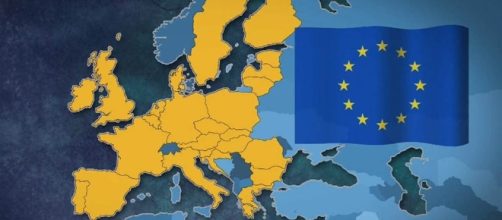During the past 12 weeks, the price of fish, butter, tea and similar staples have risen by over 5%, according to Kantar. Compared to prices last year, like-for-like inflation has doubled and is now at 1.4%. Now, grocery retailers such as Sainsbury’s are warning that this inflation could signify a price increase for consumers. Mike Coupe, Chief executive of Sainsbury’s, recently cited a competitive market and an uncertain impact of cost price pressures as the reason for concern.
Following the vote favoring Brexit last June, the value of the pound against the dollar and euro plummeted.
It’s remained an ill-performing currency since then; the pound can be described as volatile at best. The plunge in value resulted in an immediate impact on those food imports which are essential to the UK – trade became more expensive. The increase in cost of imports will necessarily mean an increase in cost for end consumers.
Brexit Britain and Agriculture
Britain has always performed well in the agriculture sector. In 2016, the UK’s food and drink exports exceeded £20bn, with exports to nations outside the EU growing at twice the rate of those to countries within the UN. But despite the competency of the UK’s farming industry, 40% of food consumed by its nationals is imported from other nations – 27% from countries within the EU.
Because the UK is so dependent upon imported food products, higher import costs mean citizens will ultimately pay more for their groceries, as Mike Coupe has suggested. To combat this increase would require a drastic shift in the stores’ supply chains, including a switch to locally sourced products.
Brexit and Supermarkets
Retail giants like Tesco are already feeling a bit of a sting. In October of 2016, retailer Tesco and supplier Unilever entered into a price war of sorts, with Unilever threatening to raise prices of goods like Marmite, Ben & Jerry’s and PG Tips. The decline in value of the pound translated to a higher price for the supplier, leaving a question of who should fall victim to the price increase: Unilever, Tesco or the consumer?
While the battle between the two companies has since come to an end, the war on price increase continues. Tesco has dropped plans to open new locations, has initiated store closings and job cuts, and is replacing management within its Express chain with lower paid “shift leaders.”
Tesco is traded under ticker symbols TSCO and TSCDY.US on the London Stock Exchange and the New York Stock Exchange, respectively. Branded in 1919, it has historically been a successful retailer, growing to own over 3,500 stores and employ 310,000 workers. But, successful as it’s been, the company’s certainly not been immune to dark times; in 2013, the retailer saw a decrease in profits, causing stock prices to drop over 50% in value in a matter of months.
Brexit's Impact on Tesco Shares
Investors are concerned that Tesco shares may suffer again. In keeping with the UK’s proclivity for relying heavily on food imports, stores like Tesco, Morrison’s and Sainsbury’s, which are headquartered in the UK, will likely bear the burden of these increased expenses.
Morrisons, in a report similar to that of Tesco’s, has warned consumers of impending price hikes. Morrisons, traded on the LSE under stock symbol MRW, has recently reported a 50% increase in profits. However, it has advised consumers that if the pound remains at lower levels, it will be necessary to raise the prices of imported food products.
As three of the largest grocery retailers, Tesco, Morrisons and Sainsbury’s will continue to compete for market share, but will struggle with the additional cost incurred by product imports.

